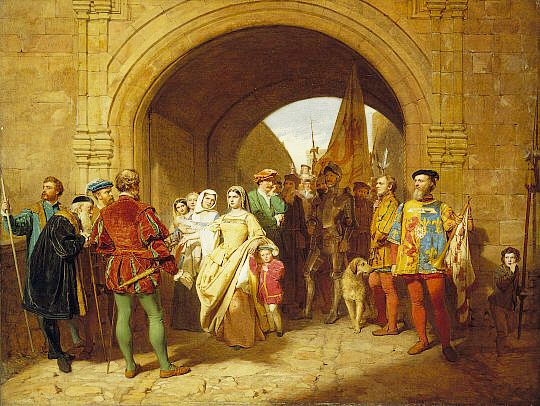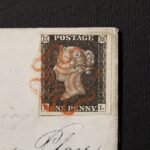 Public Domain
Public DomainThe Tudor court is often remembered for its glittering nobility, ruthless politics, and opulent ceremonies. However, behind the scenes, a web of seemingly minor roles wielded real influence. These weren’t just ceremonial titles or background extras. Many of these positions came with unexpected authority, access to the monarch, and the ability to shape major decisions. Here are some of the strangest Tudor court roles that actually put those who held them in a pretty good position, relatively speaking.
Groom of the Stool
On the surface, it sounds ridiculous: the Groom of the Stool was responsible for assisting the king with his toilet needs. But in the Tudor court, privacy was rare, and personal service meant proximity. The Groom of the Stool had intimate, daily access to the monarch, both literally and politically.
Because of this constant closeness, Grooms of the Stool often became trusted confidants. They managed private papers, relayed orders, and acted as unofficial advisors. Some even influenced appointments and policy. What started as a role rooted in hygiene became a direct pipeline to royal power. In the reign of Henry VIII, this position was held by men who became some of the most influential figures at court.
Master of the Revels
Tasked with organising court entertainments—plays, masques, and festivities—the Master of the Revels might seem like a glorified party planner. But in Tudor England, theatre and politics went hand in hand. Controlling what was performed also meant controlling the message.
By Elizabeth I’s reign, the Master had the power to approve or censor all public performances. That gave them a hand in shaping national opinion and suppressing dissent. It was a role that blended culture and control in a way few other court offices could. The Master also worked closely with playwrights, including Shakespeare, and decided which works were suitable for royal eyes.
Keeper of the Wardrobe
This role involved overseeing the monarch’s clothing, jewellery, and textiles. While that might sound like a fancy valet, it was much more. The Keeper of the Wardrobe controlled huge budgets, coordinated with merchants, and managed a vast inventory of goods.
In a court obsessed with appearances and symbolism, clothing was a political tool. The Keeper ensured the king or queen always made the right impression, and had influence over who got to wear what, when. It was both a logistical and diplomatic job, touching on matters of rank, loyalty, and ceremony. Lavish gifting and strategic dressing could help secure loyalty or send coded messages to rival factions.
Clerk of the Signet
The Clerk of the Signet handled one of the monarch’s private seals and prepared personal letters and documents for approval. This meant access to sensitive information and the ability to influence what made its way up the bureaucratic ladder.
Though technically a minor scribe, the Clerk could delay, prioritise, or subtly edit what passed under their pen. In the right hands, that kind of administrative leverage could make or break careers, or even tilt foreign policy. It was quiet power, but it was real. Clerks were often promoted from within the court and were deeply trusted, working closely with the Privy Council.
Lord Chamberlain
More familiar than some others on this list, the Lord Chamberlain still deserves a spot for just how wide-ranging their influence was. In charge of the royal household, the Lord Chamberlain oversaw everything from security to ceremonial events to who had access to the monarch.
That gatekeeping power alone was enormous. By controlling access, the Lord Chamberlain could shape the monarch’s day, limit rivals, and advance allies. In the factional world of Tudor politics, proximity to power was half the battle, and the Chamberlain held the key. The role also came with influence over court culture and often aligned with the monarch’s personal preferences.
Yeoman of the Cellar
This humble-sounding role involved overseeing the storage and service of wine at court. But given how central feasting and hospitality were to political life, the Yeoman of the Cellar had more influence than you’d expect.
They controlled who received what, when, and how much. That meant currying favour or withholding it, subtly shaping alliances. They also had access to private gatherings, where real decisions were often made. Being in charge of the drink wasn’t just a matter of logistics. It was a political posting. At a time when banquets were where alliances were sealed, this job quietly shaped the court’s social engine.
Gentleman Usher
Gentleman Ushers managed everything from seating arrangements to introducing guests to coordinating royal entrances. However, don’t be fooled by the ceremonial tone—these roles shaped social dynamics at court in very real ways.
In a system obsessed with hierarchy, being seated next to the wrong person could be a career-ending snub. Gentleman Ushers had the power to elevate or embarrass, to include or exclude. They managed who was seen, who spoke, and who was overlooked. Their deep understanding of court etiquette made them indispensable to both monarch and courtiers.
Keeper of the Privy Purse
This person managed the monarch’s personal finances. Unlike broader state funds, the Privy Purse dealt with the royal household’s daily expenses and discretionary spending. This meant influence over personal gifts, pensions, and purchases.
Because it was a direct link to the sovereign’s private wealth, the Keeper was a trusted figure. They could discreetly steer money to loyal allies or cut off rivals. They also had access to the kinds of transactions that reflected the monarch’s mood and favour, which was valuable information in court politics.
Surveyor of the Melting House
This obscure role involved overseeing the melting and recasting of royal plate and coinage—essentially, managing the transformation of wealth into new currency or ceremonial objects. It might sound like a metalworker’s job, but it was a position of real trust and responsibility.
Not only did this person manage the crown’s precious metals, but they also had insight into the state’s financial health. In times of war or extravagance, they’d know when and how the crown’s assets were being converted or pawned. That insider knowledge could carry weight in political dealings.
Sergeant of the Scullery
Responsible for the monarch’s kitchen equipment and tableware, the Sergeant of the Scullery may seem like a background figure. But the Tudor kitchen was a centre of activity and influence. This role ensured everything from feasts to private meals ran smoothly.
Access to the royal kitchens meant access to gossip, visitors, and even confidential instructions passed discreetly between courses. Like many other domestic roles at court, this position offered a window into royal habits, and a way to curry favour through small acts of service.
Why these roles are so interesting
The Tudor court was a stage, and everyone had their part to play. However, some of the most powerful performances came from behind the curtain. These strange-sounding jobs weren’t just fluff or tradition. They were conduits for influence, access, and control. In a world where appearances mattered and proximity was power, even the oddest roles could carry serious weight.
Understanding these positions helps reveal how court life really worked, not just through nobles and monarchs, but through the hands and whispers of those in the background. They remind us that in Tudor England, you didn’t always need a title or a fortune to shape the direction of the realm. You just needed to be in the right room, with the right responsibilities, at the right time.



